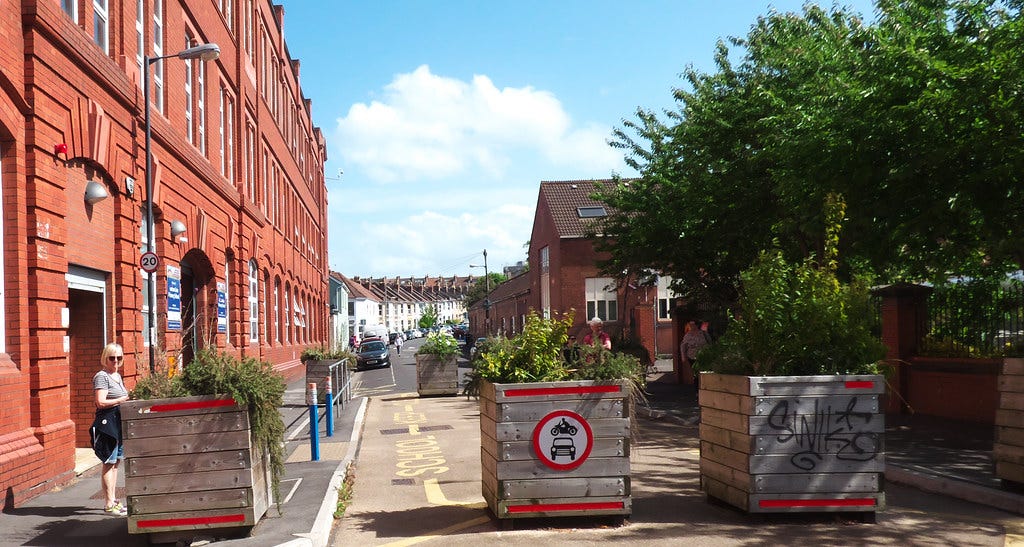Mobility Matters Daily #464 - Low Traffic Railway Children
Good day my good friend.
The difference in leadership is striking. One quits because they cannot give it their all. One apologises for not adhering to basic road safety, and defends taking internal flights within the UK on routes that are easily travelled by train because they are busy. Sorry to be political, but the difference is night and day. And some wonder why people don’t like politicians.
If you have any suggestions for interesting news items or bits of research to include in this newsletter, you can email me.
James

LTNs again
Its been a while. But yesterday, a new report was published showing the impact of LTNs in Inner London (important emphasis, here), and was picked up by The Guardian. The results kind of confirm previous analyses - internal roads within LTNs see reduced traffic levels, and the record on boundary roads is mixed. And dependant upon context. To be fair to the authors, they realise the issues with their analysis (variable data quality, primarily Inner London setting).
I’m not going to comment on the commentary - its boring and adds nothing. LTNs are a useful policy and traffic management tool to reduce traffic volumes, but their impacts vary according to context. But more critically, they cannot be delivered in isolation. Efforts to reduce traffic levels overall must be delivered to achieve better cities. Otherwise, why bother?

We all need to become Railway Children
I don’t mean sitting on fences barely yards from a passing steam locomotive. But as any kid with a train set will tell you, trains are good for you. And now, amazingly, there is a study to prove it. Courtesy of our good friends in Japan, children who live closer to train stations have, in their words, “better hyperactivity outcomes” and less issues with inattention. While the negative impact of ambient noise on mental health is known, this is an interesting outcome, and shows that this whole area of impacting on mental health is extremely complex.
The study offers no explanation - only an observation. But let me pose a (admittedly lacking evidence) suggestion. This may be due to variations in range experienced by children. There is evidence that children’s range is being restricted, and it is having a number of negative effects. Could the simple act of living close to a railway result in a broader horizon? I would love to see the research to find out!

Random things
These links are meant to make you think about the things that affect our world in transport, and not just think about transport itself. I hope that you enjoy them.
Can 3-D Printing Help Solve the Housing Crisis? (New Yorker)
Davos: There’s life in global capitalism yet (Financial Times)
Culture Study Challenge: One Small Community Thing (Culture Study)
Don’t ban ChatGPT in schools, but teach with it (Straits Times)
Something interesting


Yes, its the Bird Site (I promise this won’t happen again). But this graphic about shifting car ownership and use from zoomers to Boomers is very, very good. Here’s the article where it is from.
If you do nothing else today, then do this
The War on Cars Podcast has an interview with Mr Parking himself, Donald Shoup. Or is that the Shoup Dogg? Regardless, its a brilliant listen.


